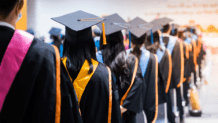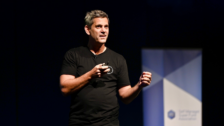Global economy in the middle of a ‘classic slowdown’: BCA
To understand where the global economy stands today, we must look to the past and most importantly back to the business cycle, explained Irene Tunkel, Chief US Equity Strategist at BCA Research. Speaking at The Inside Network’s Equities and Growth Assets Symposium last week, Tunkel highlighted the unique challenges facing every investor in the world.
Despite the best efforts of central banks and governments to stimulate the global economy into submission, or at least smooth the volatility of the traditional boom-bust business cycle, Tunkel says that the “US economy is in the middle of a classical slowdown.”
All the confirming evidence is there, be it a slowdown in the pace of growth, the Federal Reserve beginning to hike interest rates or an unanticipated, sustained increase in inflation. The problem, however, is that very few of today’s investors were alive, let alone working in finance, when the last true recession occurred in the 1980s.
Yet the business cycle may well be the most important factor for any asset allocator, but particularly for those building multi-asset and equity portfolios, Tunkel explained. Historically, she said, classic slowdowns have been met with “pedestrian returns from equity markets and heightened volatility.”
Tunkel delivered a deep-dive analysis into the micro-economic factors influencing the macro environment both in the US and around the world, beginning with the under-appreciated impact of inflation on the lowest income cohorts. According to BCA’s analysis, the lowest-income cohort spends some 25 per cent of its income on food, and the richest just 8 per cent, meaning the key source of incremental economic growth is among the most pressured in the current environment.
Evidencing this pressure, Tunkel flagged the massive US$2.3 trillion ($3.1 trillion) in excess savings accumulated during the pandemic, but noted that after a short-term dip, credit card spending is beginning to recover with gusto. “Is a recession imminent?” Tunkel asked, with the answer that the most important yield curves are not predicting this, but the probability is both high and real.
In an environment where growth is already slowing, she highlighted the growing challenges for US corporates and listed companies, which are dealing with wage growth in an environment where labour now represents some 55 per cent of their cost of sales. Whilst they are seeking to pass these costs onto consumers, this is becoming more challenging with record operating profit margins set to contract as 2022 extends.
Tunkel explains that the volatility experienced thus far in 2022 may only be the beginning with three criteria required before a sustainable rally in US equities is possible: that being a “full pricing-in of the effects of war, inflation and tighter monetary policy,” which appears a long way from being realised. Her conclusion was that the market is increasingly one for professionals and stock pickers, and is far more challenging than in 2020.
Rob Da Silva from SQM Research seconded this commentary in his presentation: “60/40 is not dead.” Tasked with finding alpha and diversification in what has become an increasingly treacherous market to navigate, he stressed the importance of knowing what you own, and focusing on the detail.
Describing the incredible last decade of equity returns, he compared it to “a car flying down the highway at 100 miles per hour” – all you needed to do was “hold equities, hold growth stocks and hold tech,” and your clients, would be ecstatic. While “buying the dips” has worked brilliantly for more than a decade, this strategy is being increasingly challenged by the growing divergence of outcomes between companies, sectors and countries.
One of the most under-appreciated risks in portfolios, according to Da Silva, is the over-reliance on US equities, but particularly the largest companies in the world. This concentration risk, he explained, is prevalent in most portfolios, but has been “hiding the weak performance of the rest of the market” for years. This performance difference between the likes of Apple, Alphabet and Microsoft has been “mind-boggling,” with investors being forced to take action by looking at diversification in many other ways, including factor-based, size and even non-traditional growth assets.
This was a sentiment echoed by Leslie Mao, head of equities at Willis Towers Watson, who reiterated that equity portfolio construction in this environment was “all about stock-pickers.” He highlighted the risk of relying on core managers within portfolios that are managing their own tracking error, and which could easily be replaced at lower costs.
Mao is increasingly backing his managers to identify themes and opportunities, advising not to put “too rigid a framework” around them, and also warning that very few have the ability to time markets or sectors consistently. Ultimately, the conclusion was that the pursuit of alpha in the future will require more active, considered growth allocations.











